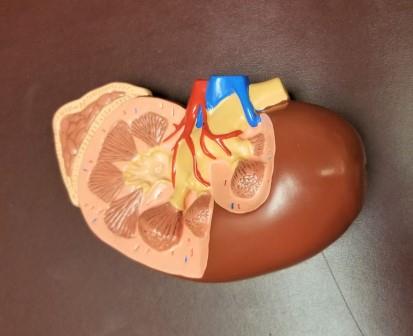People who are diabetic are at higher risk for kidney disease but there are steps they can take to protect their kidneys. However, before getting into that, let us take a look at how diabetes and kidney disease are linked.
What is the link between diabetes and kidney disease?
Seasoned doctors associated with Blue Bliss Hospital, the best kidney hospital in Bangalore, are of the firm opinion that diabetes is the most frequent cause of chronic kidney disease not only in India but across developed counties around the globe. Kidney disease in people suffering from diabetes is attributed to multiple factors including diabetic changes in the kidneys as well as vascular variations due to high blood pressure. In diabetic people, the percentage of blood glucose levels is considerably high which can damage the kidneys and lead to kidney disease.
According to Kidney Specialist doctors in Bangalore, people diagnosed with diabetes may already have hypertension which is an additional risk factor for developing kidney disease because high blood pressure damages the kidneys and prevent their normal functioning.
Why should kidney disease in patients with diabetes be diagnosed as early as possible?
Nephrologists in Bangalore suggest that an early diagnosis of kidney disease, especially in diabetic people, can go a long way in slowing down the progress of the disease. The objective is to prevent acute renal failure which is when the kidneys lose most of their ability to function. Subsequently, you avoid end-stage renal disease, which is the stage at which dialysis or a kidney transplant is the only way out to survive.
How is Kidney Disease diagnosed?
Your doctor will assess the performance of your kidneys by recommending a blood test to check the levels of serum creatinine. The other test done to diagnose and monitor kidney disease is the urine albumin test.
Kidney Specialists in Bangalore recommend that people with diabetes, hypertension, heart disease, family history of kidney disease and diabetes and those who smoke should be tested for kidney disease. Testing for kidney disease is inexpensive and easy and is critical to identifying and treating the disease early.
How can Kidney Disease be treated and prevented?
It is critical for healthcare professionals to educate patients, especially those who are diabetic, to create awareness about kidney disease at an early stage. It is equally important for patients to undergo a kidney function test at periodic intervals to know how their kidneys function. When patients understand their risks, they are more likely to discuss with their nephrologist about getting tested for kidney disease and become more aware of the importance of keeping their kidneys healthy.
Nephrology specialists in Bangalore associated with the renowned Blue Bliss Hospital suggest that as kidney disease progresses relatively slowly with few or no symptoms, there is a very long window of opportunity to personalize and adjust treatment to a patient's situation.
Lifestyle changes and managing blood glucose levels through appropriate medications are the common ways adopted to prevent kidney disease due to diabetes.
